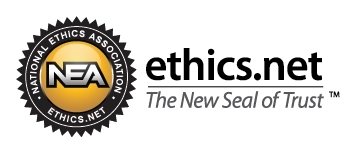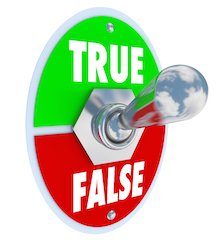For many insurance and financial advisors, misrepresentation has become just another sales technique. For financial institutions, it’s become an accepted cost of doing business. For consumers, it’s become something bad advisors do—and have always done.
Here are a couple cases in point:
According to On Wall Street, Donna Jessee Tucker, a Virginia-based broker, “allegedly . . . engaged in unauthorized trading and other financial transactions, and that she misrepresented her actions to customers by forging documents and lying to them.” Authorities claimed Tucker stole $730,000 from elderly clients, using the money for vacations, a country-club membership, three vehicles, and other personal expenses. She also allegedly hid her tracks by sending false account statements via e-mail, which she believed her elderly clients wouldn’t read. In one case, she is accused of misappropriating $347,000 from a blind couple by forging their checks and cashing them at a credit union. Then she concealed her activities by issuing fabricated documents.
In Scotrun, Pennsylvania, a financial advisor generated more than $2 million in commissions by selling unsuitable investments and by fabricating client records. According to Financial Advisor, authorities charged Anthony Diaz with selling 80 clients variable life policies with large surrender fees even though they were near retirement. He also lied to insurance companies about his clients’ incomes and assets in order to qualify them for higher amounts of insurance. Making matters worse, Diaz also misrepresented an investment by telling clients it paid a guaranteed income of 9.1 percent and a 100 percent return of principal within five years. The investment did not guarantee either of those features.
Given such advisor conduct, is it any wonder misrepresentation has been the top controversy driving FINRA arbitration cases over the last four years. What’s more, it commonly sparks a major percentage of errors-and-omissions claims. In one prominent group of financial advisors, it was implicated in 25 percent of all claims, according to the program’s sponsor and insurer.
How do you feel about this? Hopefully, you are as outraged as we are at the National Ethics Association and also believe the time for blasé acceptance of misrepresentation is past. Advisors and product manufacturers can no longer afford to view deceptive sales practices as “the new normal”—or would that be “the old normal?” They must do what’s needed to root out this damaging behavior and rebuild how the public—and regulators—view our industry. Why is this especially important now? For four crucial reasons
First, survey after survey has found that working baby-boomers are woefully unprepared to retire. We believe one reason is they’re afraid to entrust their finances to a financial advisor who might lie to them. The longer they put off getting the help they need to devise an income strategy, the more perilous their retirement will be.
Second, as more boomers retire and more aging financial advisors do the same, the advisors who continue working will need to transition their practices to a younger clientele. Problem is, millenials know all about Bernie Madoff and Ponzi schemes. In order to attract and build relationships with them, financial advisors must stop saying whatever it takes to close a sale, especially spreading falsehoods.
Third, the advent of robo-advisors is poised to reshape the investment-advisory business. Among the many strengths of this advice model is its ability to hardwire compliance into the system. Much as healthcare technology is reducing drug errors by abolishing doctor-scrawled scripts, robo-advisors will also bake ethics and compliance into every client interaction. Given the choice of dealing with an electronic platform that dispenses honest advice every time or with a human advisor who may or may not tell the truth, whom do you think tomorrow’s consumers will prefer?
Fourth and finally, as boomer advisors age out of the industry, distribution capacity will become an even larger growth constraint. Overcoming it will demand a financial-advisor force dedicated to integrity and truth, since deception-based sales will produce less consumer satisfaction, poorer client retention, lower production, and reputation problems for the industry.
Our bottom line? We have two:
- If you’re in the habit of making products look better than they are in order to close a sale, you’ll probably never quit doing so. However, you should turn yourself in now and request leniency because you will get caught.
- If you’re an ethical advisor, don’t assume you’ll never misrepresent an offering. Even though you’d never do it intentionally, it’s easy to do it accidentally by not knowing your product provisions. If you’re serious about being a truth-based advisor, then get equally serious about mastering your products’ features, benefits, and contract language. Pay special attention to surrender penalties, fees and expenses, guaranteed vs. illustrated dividends, and medical underwriting requirements.
Because at the end of the day, the only way to banish lying advisors from the industry is for the honest ones to simply outperform them. Are you up to the challenge?
For more information on ethical sales practices, please visit the National Ethics Association’s Ethics Center. For more information on affordable errors and omissions insurance for low-risk financial advisors, visit E&OforLess.com.













